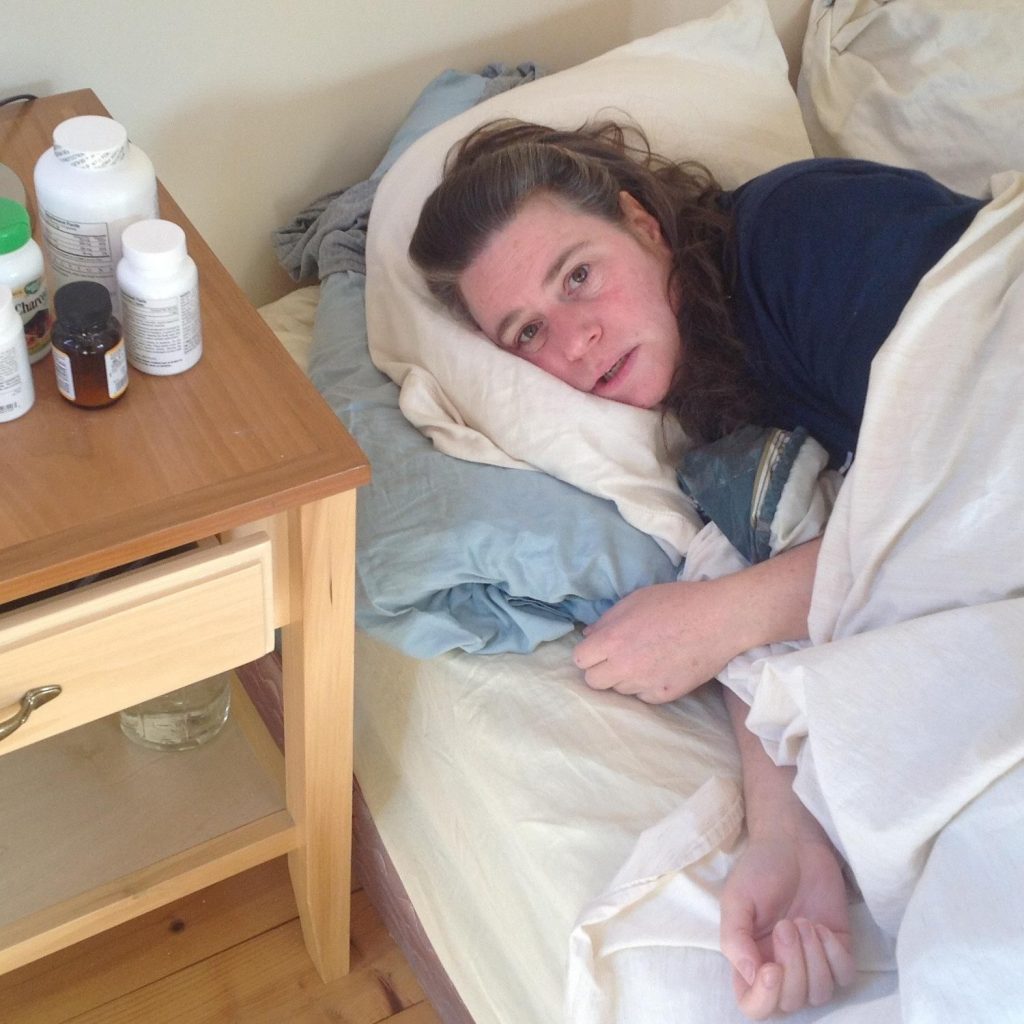Erica Verrillo of Whatley has written more than half a dozen books and launched a non-profit national organization, all while being partially bedridden for the past three decades.
Verillo has Myalgic Encephalomyelitis (M.E.), a chronic and fluctuating neurological disease characterized by extreme exhaustion, muscle weakness, sensitivity to pain, confusion, forgetfulness, a weak immune system, and a lack of concentration.
In 1998, Verillo co-authored a health book called, Chronic Fatigue Syndrome: A Treatment Guide, which was the only book available as a guide for people suffering from M.E. Using the knowledge she’s gained from writing the book and the more expansive second edition published in 2013, she founded the American Myalgic Encephalomyelitis and Chronic Fatigue Syndrome Society this past year.
“People with M.E., we don’t have a national organization … There’s plenty of organizations that represent people who have different diseases. We don’t have one. The purpose of the organization is to provide direct aid to patients — how they can find doctors, how they can find treatments that are effective, helping them with disability forms,” she said.
There are more than 3,400 research abstracts on the site, which is available for patients as well as physicians and researchers, she said.
Verillo said she became sick with a mild form M.E. in 1992, which went undiagnosed.
“What they don’t tell you is that with the mild case, you can have a relapse,” she said. “A relapse can produce a severe case and that’s exactly what happened with me.”
She said she was housebound for three years and it wasn’t until 1995 that she was able to drive again. A decade later, she was able to hike with completely exhausting energy.
“I wasn’t recovered,” Verillo said. “I could do some part-time work. I could not do a full-time job and I still had to be careful. It was what you call a functional recovery. Everybody who looked at me thought they were looking at a normal person. I have rules — nobody could call me after 7 p.m. I had to be very strict about that time. You do have to toe the line with this disease. I don’t know anybody who’s made a full recovery.”
Rivka Solomon is a 55-year-old local area resident and community organizer and event coordinator with the Massachusetts M.E. Association. She has lived with the disease for the past 27 years and said the disease is often misrepresented as chronic fatigue syndrome.
“It negates the true devastation of the disease,” Solomon said. “What we experience is not fatigue. What we experience is a cellular inability to make energy. It translates into one of the many symptoms – complete and utter depletion. Just getting out of bed to go use the toilet is often too much. There are times when I have to use a wheelchair … It’s almost like a semi-paralysis where your muscles just won’t work.”
One of the other symptoms is a consistent brain fog, she said.
“I’m in the middle of a sentence and it’s hard for me to remember what the beginning of the sentence was and what the end of the sentence was supposed to be,” Solomon said. “I will leave a pot of water boiling on the stove and I’ll forget that it was there. It’s a cognitive dysfunction that feels like dementia.”
She said the disease exists on a spectrum. Some people are diagnosed for most of their lives with mild cases, while others have more extreme cases such that taking a shower can be a depleting activity.
Solomon said an Oscar nominated documentary film called Unrest, created and directed by Jennifer Brea, a former Ph.D. student at Harvard University who became bedridden with M.E., has helped people suffering from the often stigmatized disease gain more recognition.
She said in the past the United States government has only allocated $6 million per year to research M.E., while multiple sclerosis research is afforded more than $100 million annually. This year, M.E. research funds were increased to $13 million per year.
“The disease has been neglected by the government; patients have basically been abandoned,” she said. “The government has been okay about allowing the disease to be stigmatized. A lot of the research that they’ve conducted has focused on the psychological dimensions of the disease, which is another way of discounting the disease.”
Solomon thinks part of the reason research for M.E. is underfunded is due to sexism. More than three quarters of patients who are diagnosed with the disease are women. There are about 28,000 people in Massachusetts with M.E. and 1 to 2.5 million nationwide.
“It’s really sad, but I think the sexism that’s everywhere in the world has carried over into the world of how the medical community treats diseases that are predominantly female,” she said.
Unrest will be screened at Shelburne Falls Pothole Cinema on June 8 and 9.
Chris Goudreau can be reached at cgoudreau@valleyadvocate.com.




